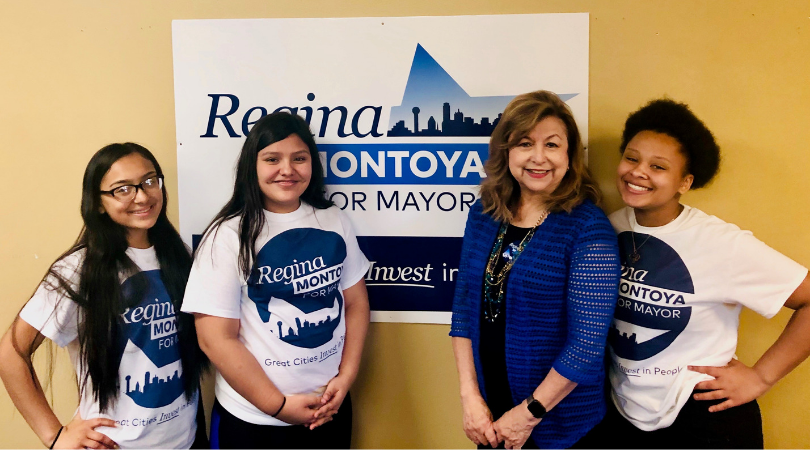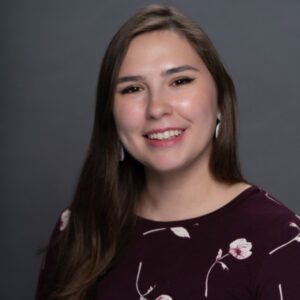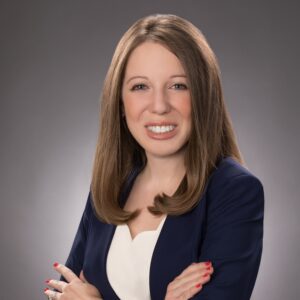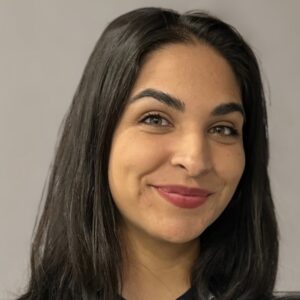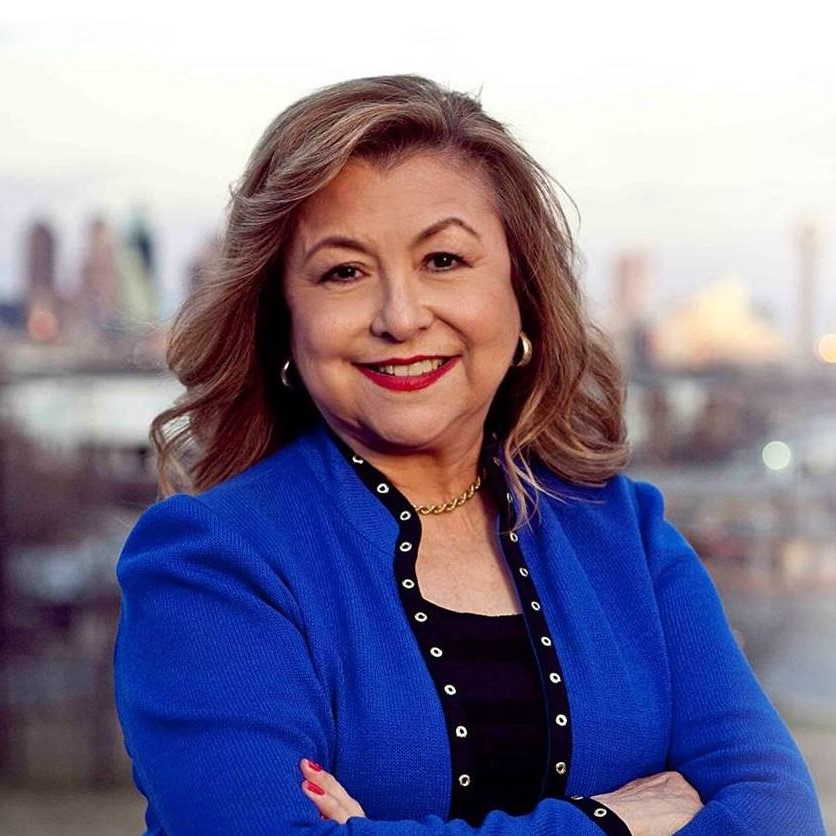
The life of Helen Keller is a widely known story in the United States, commonly referred to in conversations of resiliency, or on topics of overcoming difficult situations. Books such as The Miracle Worker by William Gibson, The World I Live In by Helen Keller, or Teacher: Anne Sullivan Macy by Helen Keller tell the story of a deaf and blind girl who, despite her disabilities, attended Radcliffe College of Harvard University in 1900 and became a lecturer. Her story of resiliency exceeds time and culture: in an eighth grade classroom in Albuquerque, New Mexico, the successes of Helen Keller touched a young Regina Montoya in a remarkable way.
Helen Keller’s story was an life- shaking inspiration for Regina whose dreams to move to Boston were born out of reading Keller’s biography, and eventually moving to Boston became a reality. “I went off… to Wellesley College and Harvard Law School up in Boston. I went to [Boston] sight unseen: I had never been there, but I had read about [it] in a book, and I was so enamored by Helen Keller, who had gone to school up in Boston, and I thought If she could do it, I could do it. And that’s how I ended up at schools in [New England], the result of reading this biography of Helen Keller.” The power of Helen Keller’s story was the trigger for Regina Montoya’s initial transplant out of the south, but what remained the wind at her back as she journeyed through college, law school, and politics was the encouragement of her parents. To Regina, that support took form of what she calls “the big dream” – something her parents raised her to believe in. “I learned from [my parents], and they were so supportive, and told me that I could basically do anything, and that they would be there to support me, and they wanted me to live the big dreams that my mom [and dad] didn’t get to do when [they were] growing up… and so, I did. I dreamed the big dream, and I went off to college and law school [in Boston].”
The big dream didn’t stop at law school. Regina went on to clerk for the Honorable Sarah T. Hughes – a federal judge who served on the United States District Court for the Northern District of Texas – and Judge Hughes’ was the first campaign Regina worked on when running for a state district seat. (If Judge Sarah T. Hughes’ name sounds familiar, you may recognize her from a famous picture taken on Air Force One on November 22, 1963…she was the judge who swore President Lyndon B. Johnson into office that tragic day) Under to tutelage of the Judge Hughes, Regina became more familiar with the politics of her city and her state; she and her husband began working with local, state- wide, and national candidates, almost all of whom were successful. One campaign Regina worked on was particularly prosperous for both her candidate and her: that of President Bill Clinton whose White- House win lead to an office in the West Wing of the Capitol for Regina. Hired as the Assistant to the President for Intergovernmental Affairs, Regina worked for the nation’s highest executive as an advisor on US elected officials. Her work for President Clinton was highly appreciated because when Regina later returned home from Washington, D.C., he appointed her as a Public Delegate for the United Nations.
Regina was a clerk for Justice Hughes, had an office in the West Wing, was a Public Delegate for the UN, was vice- chair of the Dallas/Fort Worth International Airport Board, she was Senior Vice President for Children’s Medical Center of Dallas(the seventh-largest pediatric health care provider in the nation), and CEO of the New America Alliance, but when asked of her greatest accomplishments, Regina didn’t mention any of those achievements. She says of her greatest accomplishments: “My work in Dallas.” Part of her service to the city was being appointed chair of the Dallas Mayor’s Taskforce on Poverty by Mike Rawlings, and it is the efforts of that group – along with the efforts of Girls Inc. Dallas – that Regina credits as her biggest successes. “We start[ed] with 38% child poverty, and then [asked ourselves] how were we going to be able to reduce the child poverty in Dallas? And the way you have to do it is you have to look at drivers of poverty: what is it that has created this environment? That in a place like Dallas, which has so much opportunity – in the Dallas/Ft Worth area which has some of the highest number of businesses coming to our region – what is it that’s creating this issue for others? [Those who] aren’t being able to realize their dream?” Within her time on the Mayor’s Taskforce on Poverty, child poverty in Dallas dropped to only 31%. This major feat has the bones of Regina’s favorite resource for support: data. She explains that the American Community Survey (an annually published report) and Kids Count (by the Annie E. Casey foundation) frame her understanding of the city and the ways she can help. Rather than creating programs or reactions based on anecdotal information, Regina works towards a solution that relies on the hard facts. She says that she knows that Dallas has a lot of challenges including 100,000 children that live in poverty, making it the 3rd worst rate of child poverty of any of the big cities in America with only Philadelphia and Houston worse than Dallas. But as mayor, Regina plans to reintroduce the city’s resources because she believes that with better use of public facilities, the 43% of Dallas residents who are non- English speakers will have more access to English language programs; those who lack a vehicle will have reliable transportation and able to travel to their destination; and the small things that make a big difference in people’s lives will be acknowledged.
Regina is chasing her big dream. Her big dream is not a new Dallas – it’s reminding the people that Dallas is a city that invests in its people. “I wanted to be sure that every child and every person could dream their big dream, and that their highest and best potential could be reached in Dallas. Because Dallas is one of those kinds of cities that if you work hard and we eliminate the obstacles, you too can have these opportunities.”
